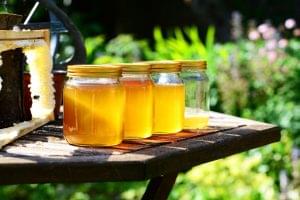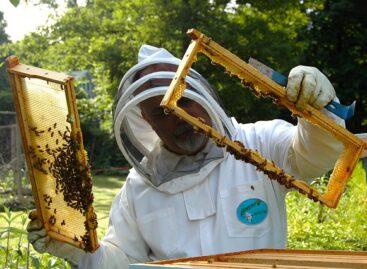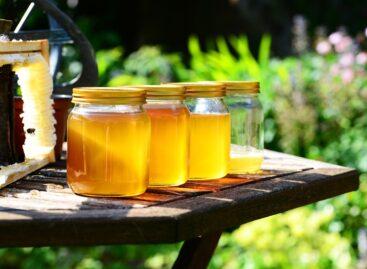Prime Minister’s Cabinet Office: the protection of the domestic and European honey market is extremely important
The protection of the domestic and European honey market is extremely important, the Prime Minister’s Cabinet Office told MTI on Friday.

High-quality honey is important for the whole of Europe (Photo: Pixabay)
According to the announcement, beekeepers, like all actors in the agricultural sector, perform their daily work amid numerous risks and difficulties. It was highlighted: The goal of the Hungarian government is to provide effective assistance to beekeepers as well. To this end, the range of subsidies that can be requested from the Hungarian Beekeeping National Program has been expanded and the recently introduced bee health subsidy will remain. Thanks to the rural development resources tripled by the government, beekeepers have an unprecedented opportunity to carry out improvements, they wrote. According to the announcement, Prime Minister’s Commissioner Zsolt Nyitrai emphasized that in the past decade, beekeepers were helped with numerous measures, which improved the competitiveness of Hungarian beekeepers here and worldwide.
The support framework for the three-year cycles of the Hungarian Beekeeping National Program is constantly increasing
In the period between 2020 and 2022, a total of HUF 8 billion in domestic and EU support resources are already available, which makes it possible to provide more than 50 percent additional support compared to the previous cycle, the commissioner listed. He added: the work of the Hungarian bee health network is also outstanding at the international level, nearly 1,000 beekeepers received bee health training. According to the announcement, Péter Bross, the president of the National Hungarian Beekeeping Association, emphasized that beekeepers can benefit from personal income tax exemption to a unique extent compared to other farmers. This year, Hungary introduced bee animal welfare support in a unique way in Europe. Within the framework of the 3-year program, a total of HUF 10 billion is available to beekeepers, he added. It was also announced that Zsolt Nyitrai and Péter Boross agreed that the measures of recent years have helped the increase in domestic honey consumption, thanks to which people now consume more than 1 kilogram of honey on average per year. They still consider it necessary to take decisive action in Brussels in order to curb honey counterfeiting.
In October 2021, the European Commission promised to review the origin labeling regulations for honey mixtures
Amendments to the current Honey Directive have also begun on Hungarian initiative, the aim of which is, among other things, to eradicate unacceptable beekeeping technologies. The goal is to prevent unripe honey from being taken from the bees and artificially thickened and sent to the market. They both agree that the joint work should be continued, so they are preparing together with the Ministry of Agriculture to renew the previous cooperation agreement, they indicated. – The war raging in our neighborhood and this year’s drought did not spare this sector either. This is also why it is important that the Ministry of Agriculture was the first in the European Union to introduce an agricultural crisis insurance system open to beekeepers at the beginning of 2021. The unique risk management tool is capable of compensating up to 70 percent of the loss of income caused by no fault of the beekeepers during their beekeeping activities. – they said in the announcement.
MTI
Related news
István Nagy: more than 2,900 billion forints reached farmers in the new agricultural support cycle
🎧 Hallgasd a cikket: Lejátszás Szünet Folytatás Leállítás Nyelv: Auto…
Read more >OMME consultant: the honey market started to move this year after three years
🎧 Hallgasd a cikket: Lejátszás Szünet Folytatás Leállítás Nyelv: Auto…
Read more >Related news
Nestlé to sell remaining ice-cream assets but commits to Froneri venture
🎧 Hallgasd a cikket: Lejátszás Szünet Folytatás Leállítás Nyelv: Auto…
Read more >40 secure jobs, sustainable solutions – new BURGER KING® in Csepel
🎧 Hallgasd a cikket: Lejátszás Szünet Folytatás Leállítás Nyelv: Auto…
Read more >









